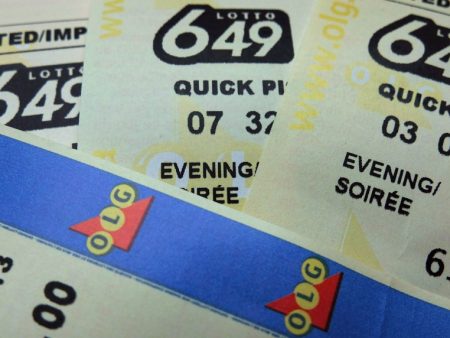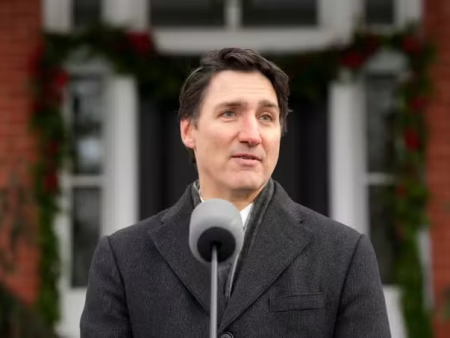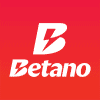Global gambling laws have made significant strides over the years, and Canada hasn’t been different. The country has been demonstrating a growing commitment to player safety, market fairness, and technological advancement.
This progress instills optimism for the future of the industry. And as countries worldwide refine their approaches to gambling oversight, comparing Canadian gambling regulations with global gambling laws reveals both strengths and areas for improvement.
This article is a thorough comparison of different aspects of these regulations with current Canadian laws.
Comparison Topics
An Overview of Canadian Gambling Regulations
Canada operates under a province-based gambling regulatory framework, granting provinces the authority to oversee gaming within their jurisdictions.
Ontario stands out as a leader, having introduced a regulated online gambling market in 2022. British Columbia, Quebec, and Alberta also manage their gaming industries, with varying degrees of focus on land-based casinos, online platforms, and sports betting.
The regulatory model of Ontario is the most expansive, allowing private operators to enter a competitive but regulated market. Other provinces, such as Alberta, are considering similar moves, while Quebec has maintained its Loto-Québec monopoly for online gaming.
This decentralized approach enables provinces to tailor regulations to local needs but has also led to inconsistencies that can complicate interprovincial gaming activities.
Global Gambling Laws: Structuring Players
Several countries serve as benchmarks for gambling regulations worldwide. Examining their strategies provides insight into best practices and reveals areas where Canadian laws could improve.
Ontario’s iGaming Framework
Ontario’s iGaming market, with its innovative approach to online gambling, serves as a potential model for other provinces. By introducing private operators into a regulated environment, Ontario aims to generate revenue while maintaining robust consumer protections.
This model has attracted major operators, including BetMGM and Push Gaming, who have praised its transparency and competitiveness.
Despite the successes of Ontario’s iGaming market, the industry is not without its challenges. Ongoing debates about advertising practices, including Ontario’s 2024 ban on celebrity endorsements, underscore the need for a delicate balance between marketing freedom and player safety.
Additionally, concerns over RTP (Return-to-Player) rates—where operators can set lower thresholds compared to international standards—continue to spark discussions about fairness and transparency.
The UK’s Stringent Gambling Policies: Lessons for Canada
The UK is widely regarded as a leader in gambling regulation. The Gambling Commission enforces strict rules on advertising, age verification, and player safety. It requires operators to disclose RTP rates and imposes limits on promotions to prevent gambling harm.
Canada can learn from the UK’s emphasis on transparency and mandatory player protection measures. For instance, the UK’s affordability checks, which ensure players gamble within their financial means, could inspire similar safeguards in Canadian provinces.
Such measures would align with Canada’s broader commitment to responsible gaming.
What Sets the U.S. State-by-State Gambling Laws Apart?
The United States offers a fragmented regulatory landscape, with each state determining its gambling laws.
Nevada and New Jersey are leaders in land-based and online gambling, respectively, while states like New York are rapidly expanding their sports betting markets.
This state-level autonomy creates diverse approaches to regulation. Canadian provinces share this flexibility, but the lack of federal oversight in Canada sometimes results in inconsistent player protections.
A more unified approach could ensure that Canadians across the country benefit from robust safeguards.
How Denmark Balances Player Protection and Market Growth
Denmark’s gambling regulations emphasize balancing market growth with strong consumer protections.
The Danish Gambling Authority requires operators to integrate responsible gambling tools, including self-exclusion programs and spending limits. Strict advertising standards and data-driven oversight support these measures.
Ontario’s iGaming framework already includes some responsible gambling measures, such as the GameSense program. However, adopting Denmark’s more comprehensive tools could enhance player safety across Canada.
France’s Gambling Laws
France’s approach to gambling is characterized by strict government oversight, high taxation, and limited private market competition.
Francophone Quebec shares cultural and regulatory similarities with France, with Loto-Québec acting as a monopoly operator for online gambling.
While this model ensures revenue is directed to public programs, it limits competition and innovation compared to Ontario’s open market. Quebec could consider incorporating elements of Ontario’s framework to diversify its offerings while maintaining strong government oversight.
Sports Betting in Brazil
Brazil’s recent legalization of sports betting has positioned it as an emerging player in global gambling.
The country emphasizes taxation and advertising restrictions to maximize revenue while protecting consumers. Its regulations require operators to allocate funds to public initiatives, including healthcare and education.
Canada’s sports betting market, expanded through Bill C-218, allows single-event wagering but lacks uniform advertising standards.
By studying Brazil’s approach, Canadian regulators could refine their sports betting rules to ensure a fair and socially responsible market.
Advertising Restrictions
Gambling advertising has become a contentious issue globally. In Ontario, a 2024 ban on celebrity endorsements aimed to reduce gambling’s appeal to minors and vulnerable groups.
The UK enforces similar restrictions, while Denmark limits promotional content to ensure it aligns with responsible gambling principles.
Canada’s decentralized model results in varying standards across provinces. A national guideline for advertising could address inconsistencies and strengthen player protections.
Player Safety and Responsible Gambling Measures Worldwide
Player safety remains a cornerstone of gambling regulation worldwide.
Countries like Sweden and Denmark mandate the integration of self-exclusion tools, while the UK imposes affordability checks to prevent financial harm.
Canada has embraced responsible gambling initiatives, such as GameSense, but these tools are not uniformly applied across all provinces.
Expanding mandatory protections, including deposit limits and loss notifications, could align Canada with global best practices.
Taxation and Revenue
Taxation structures for gambling revenue vary significantly across countries.
The UK imposes a flat tax on gross gaming revenue, while France’s high tax rates impact operator profitability. Meanwhile, Denmark uses a balanced model that supports government revenue and operator viability.
In Canada, provinces retain control over taxation and revenue allocation. Ontario’s open market has generated significant income, but disparities between provinces highlight the need for a more cohesive approach to maximize economic benefits.
Return-to-Player (RTP) Rates: Canadian Practices vs. Global Norms
RTP rates, which reflect the percentage of wagers returned to players over time, play a critical role in player trust.
In markets like the UK and Denmark, regulators mandate minimum RTP rates, ensuring transparency and fairness.
Canadian operators, particularly in Ontario, have the flexibility to set RTP rates lower than global standards. This lack of consistency has raised concerns about fairness and could undermine player confidence.
Standardizing RTP rates across provinces would enhance transparency and align Canada with international norms.
Future Trends in Global Gambling Regulation and Canada’s Position
As gambling continues to evolve, technological advances and changing societal attitudes will shape future regulations. Globally, jurisdictions are focusing on integrating artificial intelligence for player protection and enhancing oversight of online gaming platforms.
Canada’s decentralized regulatory model allows for provincial experimentation, which can foster innovation. However, this approach risks creating a fragmented system that confuses players and operators.
Aligning with global gambling regulations while maintaining local flexibility will be critical to Canada’s success. Canadian policymakers can learn from different European countries with solid gambling laws to ensure their regulations remain competitive, transparent, and player-focused.
Balancing innovation with robust safeguards will position Canada as a leader in the global gaming industry.
















